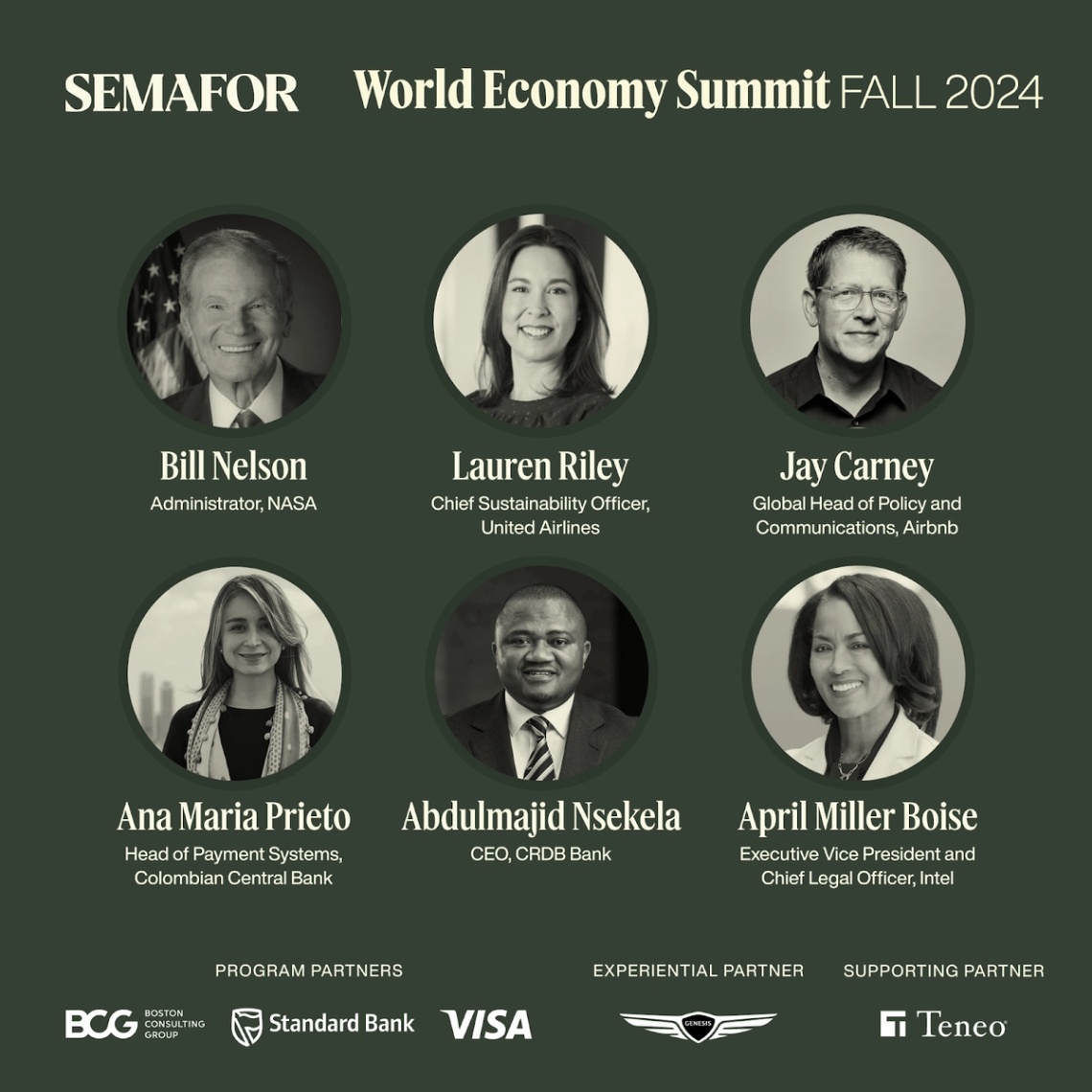 Bill Nelson, Administrator, NASA; Lauren Riley, Chief Sustainability Officer, United Airlines; Jay Carney, Global Head of Policy and Communications, Airbnb; Ana Maria Prieto, Head of Payment Systems, Colombian Central Bank; Abdulmajid Nsekela, CEO, CRDB Bank; and April Miller Boise, EVP and Chief Legal Officer, Intel, will join the Fall Edition of Semafor’s World Economy Summit. Hosted in the Gallup Great Hall and spanning four sessions over two days – Oct. 24 and 25 – Semafor will feature on-the-record interviews on the state of global finance, the future of technology, digital payment infrastructure, and sustainability. RSVP for the World Economy Summit here. |